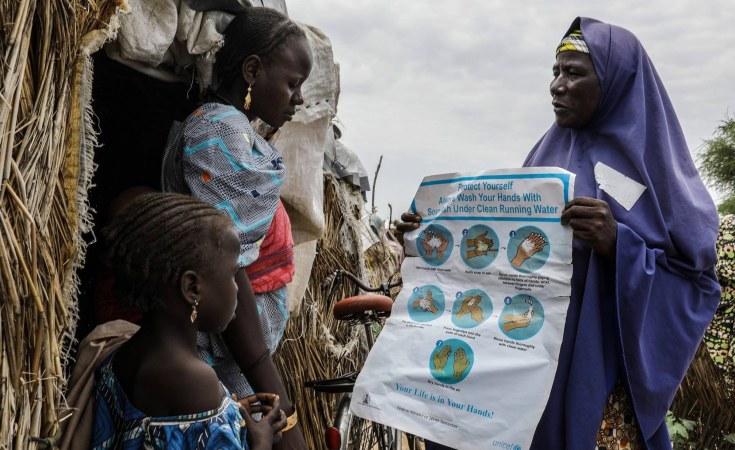Abuja, Nigeria — Cholera is surging in Nigeria, health officials said this week, with the number of cases and deaths increasing by more than 200% this year.
The Nigerian Center for Disease Control said in this week's epidemiological report that the country has recorded nearly 11,000 cases of cholera this year -- a 220% increase compared with the same point in 2023.
The report said fatalities over the same periods have increased from 106 to 359 -- a rise of 239%.
The state of Lagos accounted for 43% of the nation's cases, while Kano, Katsina, Jigawa and Borno also recorded significant numbers.
Last month, the worst flooding in 30 years ravaged conflict-ridden Borno state, worsening an already dire humanitarian situation there. Hundreds of thousands of people were displaced and moved to overcrowded camps.
"We're now facing a significant public health challenge that demands urgent attention and action," Borno Health Commissioner Baba Mallam Gana said. "This outbreak is concerning, especially in the aftermath of a flooding incident.
"The floods have created ideal conditions for the spread of waterborne diseases like cholera by contaminating water sources and disrupting sanitation systems," he said.
Cholera is a bacterial disease, usually spread by contaminated food or water. It causes severe diarrhea and dehydration.
The Nigerian CDC launched a national emergency response along with state authorities to bring numbers down, but the number of cases is surging, Gana said.
"We must now act swiftly to prevent further spread of this disease," he said.
As part of the flood intervention responses, Gana said, the Borno public health emergency center was converted into a control center to coordinate surveillance, risk communication and community engagement, as well as essential health services, infection prevention, water sanitation and hygiene.
Nigeria's Health Ministry is sending hundreds of thousands of doses of cholera vaccine to the affected areas. Borno alone received 300,000 doses, and state authorities say the vaccine has been distributed to camps for those displaced by the floods.


